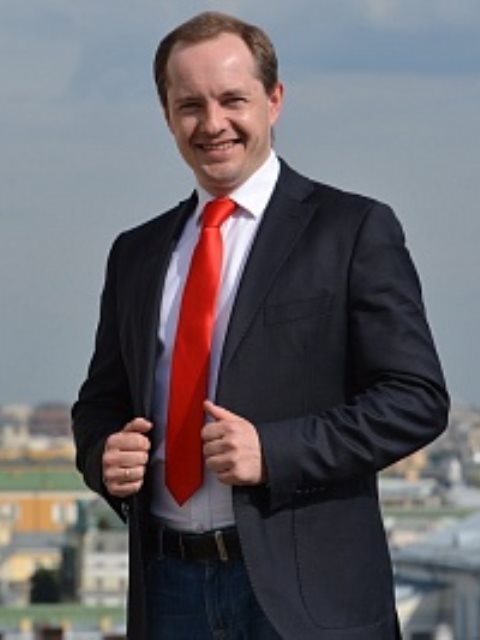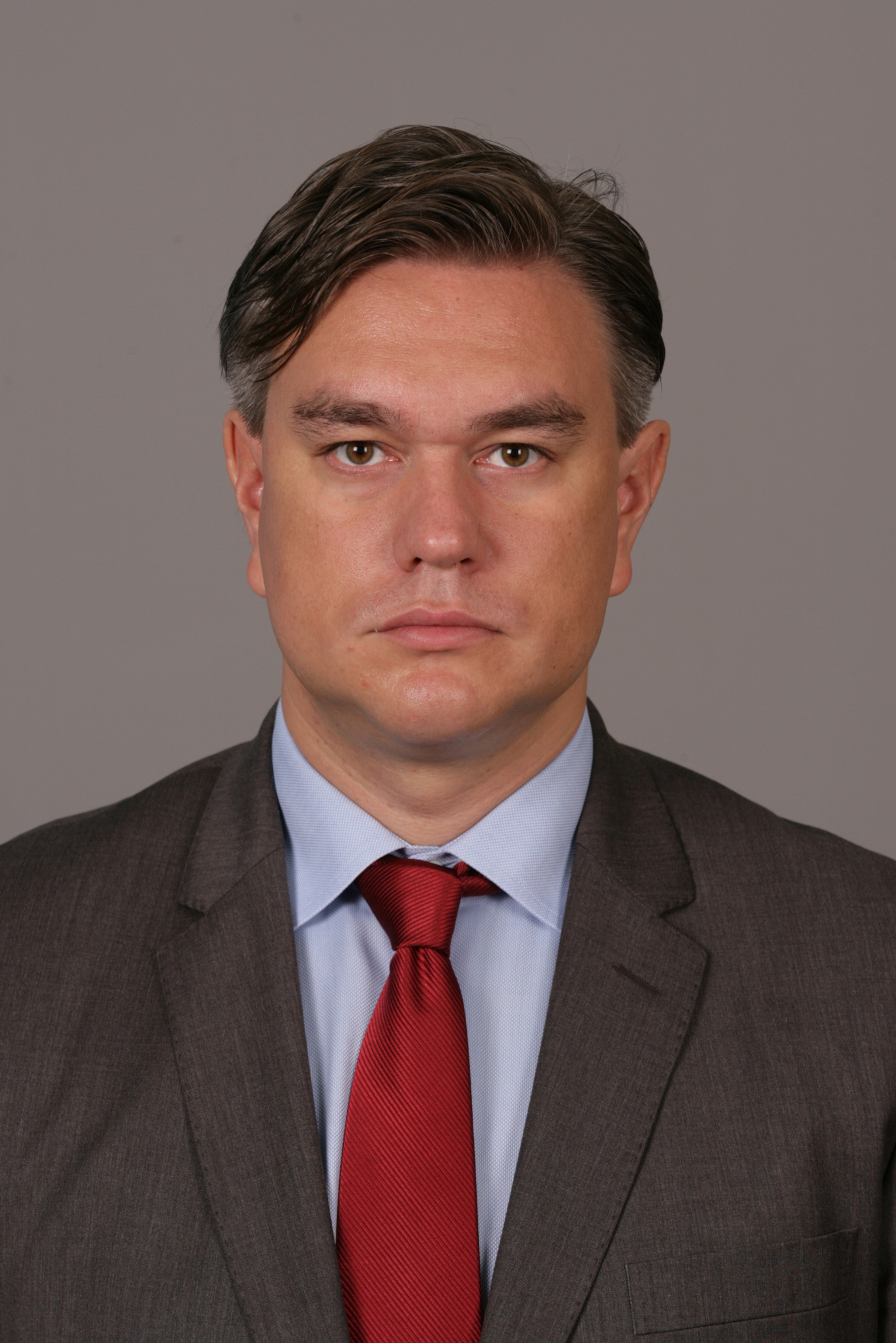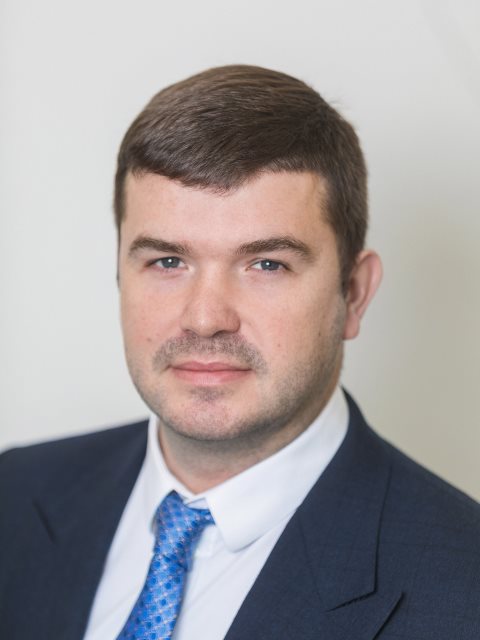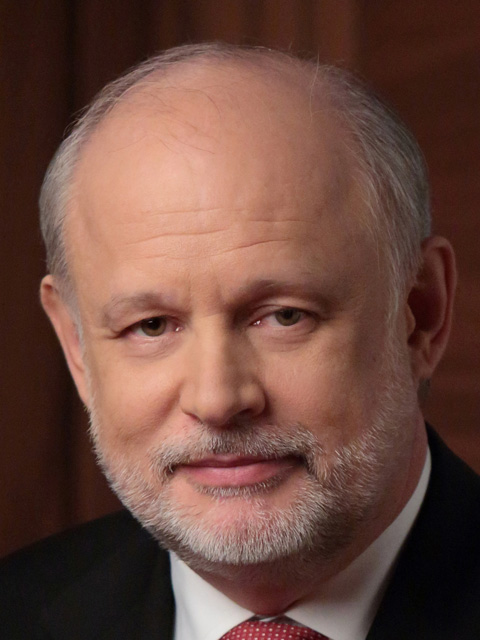EY will present its new EY Growth Navigator programme, which allows a significant rise in the effectiveness of the strategies of fast-growing companies and start-ups. The programme is based on the EY ‘7 Factors of Growth’ methodology founded on EY’s 30 years of experience of working with the fastest-growing companies and market leaders. The results of studies of the entrepreneurship segment, examples of the best and most advanced practices and a demo-version of the EY Growth Navigator will be presented.
Panellists
Maria Bantysh,
Head of CIS Business Development Department, EY
Olga Treshchalova,
Senior Manager of Business Development Department, EY
As part of a discussion on the implementation of national projects, companies that are members of Russia’s Foreign Investment Advisory Council (FIAC) and representatives of government bodies will have an opportunity to exchange views on the social agenda. The discussion will focus on the following questions: Where do the strategic goals of business and the government overlap? What is needed to strengthen the actions taken by business and the government to promote a healthy lifestyle and ensure public health?
Moderator
Anna Guseva,
Head of Transaction Advisory Services for Companies in Medical and Biological Industry in the CIS, EY
Panellists
Anders Bering,
Vice President, Public Affairs and Media Relations, Carlsberg Group
Alexey Grigoriev,
Stuart Max Merrifield,
Managing Director, Novartis Pharma LLC
Allyson Park,
Vice President of Corporate Affairs, Mars, Incorporated
Alexander Pirozhenko,
Deputy General Director, ASI
Valery Fedorov,
General Director, Russian Public Opinion Research Center (VCIOM)
Tax monitoring is form of tax administration and control that is new to Russia and based on the principles of transparency and trust between taxpayers and tax authorities. It replaces traditional audits with online interaction based on report access to the taxpayer’s information systems.
As of 2019, more than 40 major companies have already transferred to tax monitoring, 18 of them this year. Tax monitoring implies additional opportunities and advantages for participants, including:
– the company not having to undergo field and in-office tax audits;
– rapid period closing from the perspective of tax audits;
– an opportunity to receive “reasoned opinions” from the tax authority on matters of dispute relating to taxation of completed and future operations of the company, which, if followed, will release the company from fines and penalties.
Current participants in the tax monitoring system and representatives of the FTS of Russia in charge of the given sphere of FTS work will, as part of the presentation session, present and discuss the following topics:
– The key difference between tax monitoring and other forms of tax administration. What are the advantages for the taxpayer and the tax authority?
– How to prepare for participating in tax monitoring and how fast can the transfer to it be? What are the readiness criteria?
– Typical difficulties encountered by companies in preparing to transfer to tax monitoring
– Prospects for further improvement of the legislation on tax monitoring
Moderator
Irina Bykhovskaya,
Partner, CIS Tax & Law Leader, EY
Panellists
Yuriy Bondar,
Deputy managing director, Head of Department “Platform and Technologies”, SAP CIS
Maxim Vasilevsky,
Vice President for Public Affairs, Mars, Incorporated in Russia
Pavel Gontarev,
Head of B2B department, Mail.ru
Daniil Egorov,
Deputy Head, Federal Tax Service of Russia
Dmitry Kornev,
Director of Tax Administration Department, MTS OJSC
Marina Krasheninnikova,
Deputy Head of the Desk Audit Directorate, Federal Tax Service of Russia
Mikhail Orlov,
Chairman of the Expert
Council of the Committee for Budget and
Taxes of the State Duma of the Federal
Assembly of the Russian Federation
Anna Plyakova,
Deputy managing director, 1C
Signers
Leila Namazova-Baranova,
Chair of the Executive Committee, Union of Pediatricians of Russia
Guillaume Haushalter,
General Manager for Russia and Belarus, Sanofi Pasteur
Signers
Olivier Charmeil,
Executive Vice President, General Manager, General Medicines and Emerging Markets, Sanofi
Alexander Shokhin,
President, Russian Union of Industrialists and Entrepreneurs (RSPP)
“By 2050, the Chinese province of Hainan is targeted to become a unique international cluster with a mondernized economy, an FTZ, campuses of the most renowned universities, state-of-the-art scientific laboratories and the headquarters of global corporations,” according to the Communist Party Committee of the Hainan Province. Party members will present the investment and business opportunities offered by the island to the SPIEF participants, and explain how Hainan Province, China’s largest experimental FTZ, has fast tracked the construction of its free trade port.
Questions for discussion with participants of the presentation:
· What is unique about the Hainan Free Trade Zone (Port)?
· How can we open a company in Hainan today and get support from the Hainan administration?
· Business climate: how can foreign business overcome cultural and legal barriers?
· Which niche should a business in Hainan choose and why?
The event will also see the official opening ceremony of the special project ‘Charming Hainan – Island of Opportunity’ on the official website of the TASS Russian news agency.
Moderator
Nikolay Yakovlev,
Director, Press Centre, Russian News Agency TASS
Panellists
Marat Abulkhatin,
First Deputy Editor-in-Chief, Russian News Agency TASS
Wu Bin,
Deputy Head of the Publicity Department of the Hainan Provincial Party Committee
Fu Wei,
Deputy Head of the Information Bureau of the Publicity Department of the Hainan Provincial Party Committee
Sun Dahai,
Deputy Head of the Secretariat of the Party Committee; Deputy Head of the Office of the Committee for the Comprehensive deepening of Reforms; Deputy Head of the Office of the Working Committee on the Experimental Free Trade Zone of Hainan Province
Andrey Sokolov,
Deputy Director General, TASS Russia
– Presentation of the region’s tourism image
– Getting to know the province’s spiritual and cultural heritage
– Performance by the Hainan Province song and dance ensemble
Moderator
Nikolay Yakovlev,
Director, Press Centre, Russian News Agency TASS
Panellists
Marat Abulkhatin,
First Deputy Editor-in-Chief, Russian News Agency TASS
Sun Dahai,
Deputy Head of the Secretariat of the Party Committee; Deputy Head of the Office of the Committee for the Comprehensive deepening of Reforms; Deputy Head of the Office of the Working Committee on the Experimental Free Trade Zone of Hainan Province
,
Panellists
Alexander Ivlev,
CIS Managing Partner, Deputy Regional Accounts Leader for Central, Eastern and Southeastern Europe & Central Asia, EY
Alexis Rodzianko,
President, American Chamber of Commerce in Russia
The main tasks of the Strategy for development of the pharmaceutical industry of the Russian Federation for the period up to 2030 (Pharma 2030) include increasing exports of pharmaceutical products. According to forecasts by the Russian Ministry of Industry and Trade, by 2030, exports of Russia-made pharma products could demonstrate a five-fold growth if state support measures are implemented. Which support measures are needed to reach the set goal? What is hampering exports of Russian medicines? How can the state support the domestic producer? What else do Russian manufacturers need to grow their export potential?
Discussion topics:
– Barriers to export of Russian pharmaceuticals
– Differences in other countries’ regulatory requirements for registering medicines and launching their sale on the consumer market
– Range of medicines and priority sales markets for Russian medicines
– Administrative and/or financial support measures by the state
– Prospects for alliances of domestic producers with international pharma companies for joint promotion on overseas markets.
Moderator
Anna Guseva,
Head of Transaction Advisory Services for Companies in Medical and Biological Industry in the CIS, EY
Panellists
Ivan Glushkov,
Deputy General Director, STADA CIS
Zakhar Golant,
Chairman of the Board, Union of Pharmaceutical and Biomedical Clusters of Russia; Head of Healthcare Committee
Vasily Ignatiev,
General Director, R-Pharm
Oksana Monge,
General Director, Sanofi Russia
Alexey Torgov,
Director of the Department for Work with Governmental Authorities, Deputy Director General, BIOKAD
Dmitry Khalilov,
Partner, Life Sciences & Health Leader, Central, Eastern and Southeastern Europe & Central Asia, EY
Vladimir Khristenko,
President, Nanolek
Sergey Tsyb,
First Deputy Minister of Industry and Trade of the Russian Federation
Dmitriy Chagin,
Chairman of the Board of the Association of Pharmaceutical Manufacturers of the Eurasian Economic Union
The modern industrial policy of a metropolis consists of a broad concept that goes beyond the strategy of improving the competitiveness of individual companies and sectors.
The government views creation and support of specialized industrial infrastructure in a metropolis as the main catalyst of a city, which enables enterprises and people to acquire new opportunities to accelerate growth and socioeconomic development. In addition to expanding the capabilities of the innovative technological ecosystem through a number of targeted strategic initiatives and a standard set of benefits, special economic zones and technology parks need to take into account the importance of such factors as the availability of the required engineering infrastructure, a potential sales market, raw materials, labour resources and logistics. How do you create the largest research base in a city and transform the results of innovative research into advanced market products and solutions? How do you ensure success in commercializing the innovations of partner companies and developing their markets locally and internationally? What measures should be taken to attract high-level specialists and provide a comfortable environment to work and live in?
Discussion topics:
– Industrial growth strategy. Enhancing competitiveness and promoting innovation through industrial policy
– Sustainable urban development and economic performance. Are benefits a form of lost profit or tax revenue from investments attracted in the future?
– Industry specialization and manufacturing formats in metropolises
– The role of industrial infrastructure in solving social problems
– Infrastructure solutions and the legal framework. What can help ensure the inflow of investors and capital?
– Business expectations and demand. What requirements do residents have?
– Development of urban industrial sites and special economic zones. Global trends
Moderator
Olga Arkhangelskaya,
Group Leader Providing Services to Companies in Real Estate, Transport, Infrastructure, and State-Owned Companies in the CIS, EY; Chair of the Urban Land Institute (ULI) in Russia; Certified Specialist of the US Institute for Commercial Real Estate Investment (CCIM); Head of the Working Group on Financing and Investment for the Real Estate Committee of the Association of European Businesses
Panellists
Alexandra Glazkova,
Vice President, HR and Corporate Marketing, BIOCAD
Igor Ishchenko,
Chief Executive Officer, Technopolis Moscow Special Economic Zone
Zeynep Nil Sonmez,
Regional Director, Gebze Organized Industrial Zone
Alexander Prokhorov,
Head of the Moscow City Department of Investment and Industrial Policy
Valentin Romanov,
Executive Director, SUN Group
WU PENG,
Deputy General Manger Overseas
Signers
Igor Ishchenko,
Chief Executive Officer, Technopolis Moscow Special Economic Zone
Oleg Teplov,
Chief Executive Officer, VEB Innovation
Signers
Andrey Belyaninov,
Chairman of the Management Board, Eurasian Development Bank (EDB)
Alexander Stuglev,
Chief Executive Officer, The Roscongress Foundation
Signers
Andrey Belyaninov,
Chairman of the Management Board, Eurasian Development Bank (EDB)
,
The countries of Eurasia are actively applying existing and developing new trade, legal, and technological tools for deepening their economic integration. Successful economic co-operation is based on trust in people. Common social, cultural and scientific perceptions smooth out existing disagreements and form the foundation for mutually-beneficial integration in spheres of common interest. Trust in the national economies of Eurasia manifested through trust in people might trigger creation of economic values, bring them benefits from synergy and become their crucial competitive advantage within the global economy.
What values unite the peoples of Eurasia? How can trust in people make the transition rationally to national economies? What could the institutes of civil society do to create an atmosphere of trust between business and authorities?
Moderator
Vladimir Salamatov,
General Director, International Trade and Integration Research Centre
Panellists
Andrey Belyaninov,
Chairman of the Management Board, Eurasian Development Bank (EDB)
Sergei Glazyev,
Advisor to the President of the Russian Federation
Yanina Dubeykovskaya,
President, WCFA
Chen Dongxiao,
Professor, President, Shanghai Institute of International Studies (China)
Thorsten Jelinek,
Director and Senior Fellow at the Taihe International Institute (Germany)
Bernard Lozé,
Vice-President, Association Franco-Russian Dialogue
Dalbir Singh,
Co-Chairman of the General Council, International Union Eurasian Peoples' Assembly






































